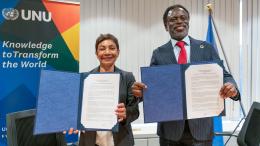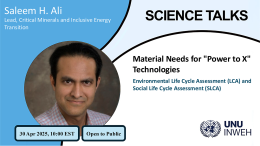Cities account for 75% of carbon emissions today. Achieving global emission goals requires city leadership. Rapid and radical decarbonization, however, can only be sustainable if it is socially just. Transformations that go beyond technical solutions require holistic approaches and buy-in from diverse stakeholders and citizens.
To shift urban sustainability trajectories, cities need to reconfigure their deeper social, technological, and political systems that are currently reinforcing high-carbon, resource-intensive urbanisation. Such a goal requires holistic visions for desirable urban futures for any actor involved. The Transformative Urban Coalitions (TUC) project seeks to change these structures and values by shifting the mindsets of urban citizens and decision makers, and building new urban coalitions to implement strategies that lead to socially inclusive zero-carbon cities.
The project is focusing on Latin America, where cities are already seeing effects of the climate crisis, such as extreme heat events, water stress, deterioration of natural assets and air pollution. To trigger transformative processes catalyst projects in five Urban Labs in Mexico, Brazil and Argentina are implemented and new models of coalition building and governance tested. This process is enhanced by transformative research, tailored communication strategies and capacity building activities. The project will also utilize film and art to inspire new narratives of attractive urban futures and shift mindsets towards sustainability. Finally, models of coalition building and governance will be scaled up to other cities and countries, and ultimately to influence global agendas for sustainability transformations.
After an Appraisal Phase during which the consortium engaged in a range of activities to develop the overarching conceptual framework, refine shared objectives and a work plan, the main phase started in January 2021. Next to UNU-EHS, project partners are the World Resources Institute (WRI), the International Institute for Environment and Development (IIED), and the German Institute of Development and Sustainability (IDOS). TUC is funded by the German Federal Ministry for Economic Affairs and Climate Action (BMWK) under its International Climate Initiative (IKI).




